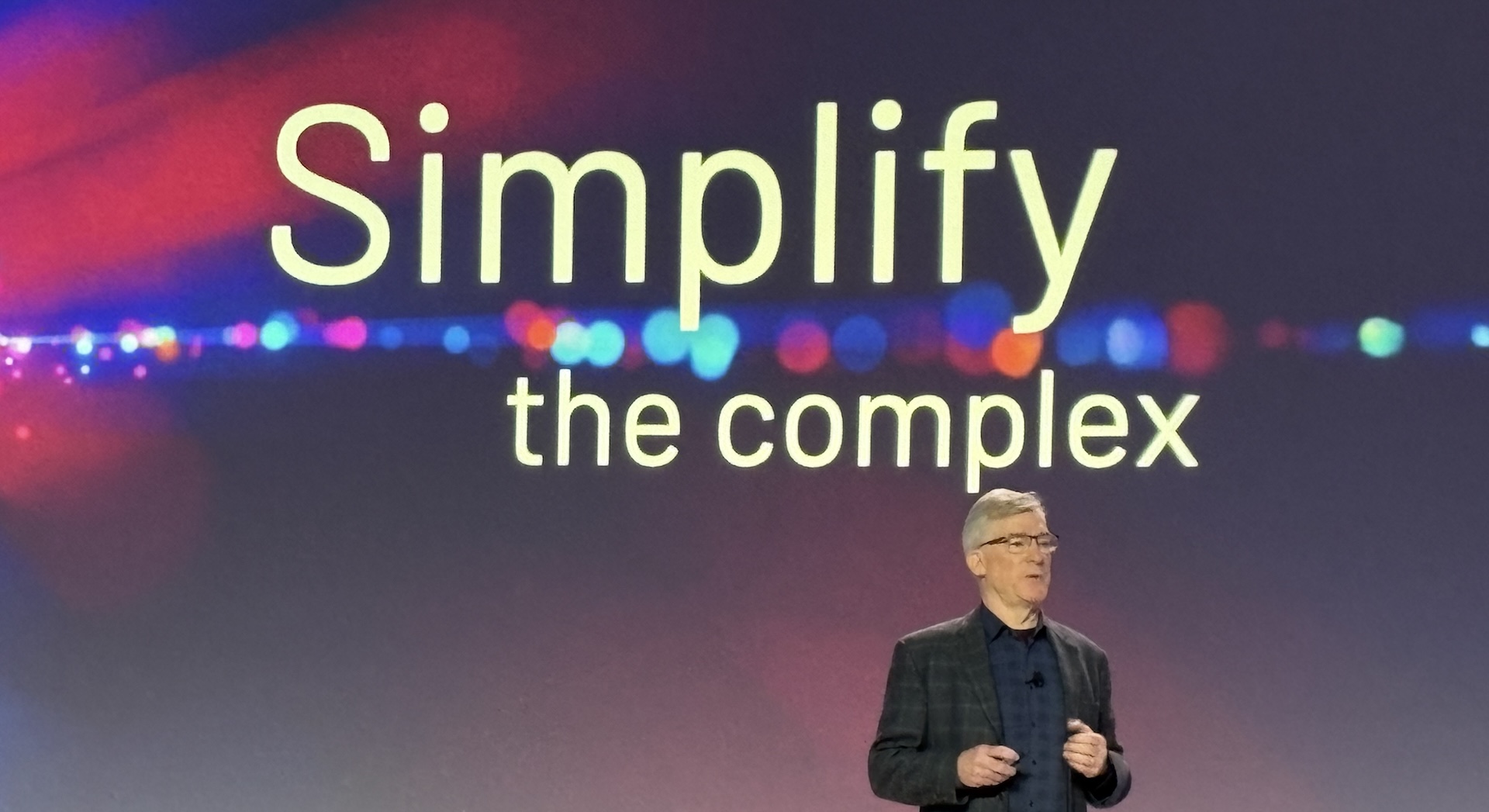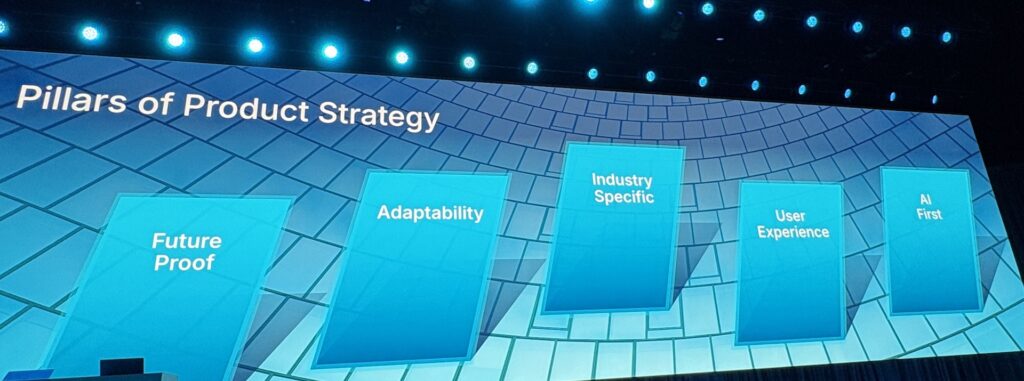Rockwell Automation’s annual Automation Fair at McCormick Place in Chicago revved into high gear with CEO Blake Moret highlighting the company’s emphasis on the future of manufacturing. During the keynote, Moret said the company’s automation journey is about establishing the “why” for the journey, and why it is important to continue evolving.
He also noted automation is a complex process because no company has a homogenous operation. “Our goal is to simplify the complex,” he said. “We want to be able to use AI and bring everything together in as simple a form as possible.”
To help in the process of going from automation to autonomy, having the right information and processing data effectively is critical. Plex, a Rockwell Automation company, plays a key role in this transition, said Matheus Bolho, SVP of product management during his own keynote speech.
Plex MES is a manufacturing software solution designed to provide real-time production management to drive enterprise-wide compliance, quality, and efficiency while maintaining full connectivity to the ERP.
Right Course for Manufacturers
Michael Hart, head of industry strategy and growth at Plex, elaborates in an interview with ERP Today on the company’s elastic capabilities, which extend to ERP functionality. He says their main emphasis is finding what works for the customer. Plex is designed as a single-source, multi-tenant model on a shared data structure, and their approach to AI is pragmatic, he explains. It is about making sure AI is helping Plex deliver value to customers.
“It’s super important for us to meet our customer needs,” he says. “Whether it’s one line, one plant, or one capability; depends on what makes the most sense.”
Starting small and focusing on a particular problem or pain point gives companies a low-risk proof of concept that delivers actionable insights. With more than 3,000 plants using Plex and recording more than 11 billion transactions per day—amounting to more than 4 trillion annually—Hart stresses the importance of scale and scalability.
“Structured data is critical to driving autonomous, intelligent operations,” he says. “The two big challenges are access to enough contextual data that is both structured and standardized to drive insights.”
AI can help synthesize MES and ERP data into actionable outputs, but that is only part of the puzzle in the company’s broader effort to help customers go from automation to autonomy.
AI’s role goes beyond simplifying data, Hart adds. It also supports consistent worker performance through connected solutions. “When leveraging our connected worker solutions, we have seen a 50% to 80% reduction in onboarding time,” he says.
Workers connected to the MES and ERP systems benefit from operating in a unified, easy-to-use platform. Plex connects them with the right data and gives them the best chance to succeed in an autonomy-driven future.
“Autonomy isn’t about replacing people; it’s about amplifying their expertise,” Hart says. “They know the system, the workarounds, and the platform. We take that knowledge and amplify it into the system they already know.”
What This Means for ERP Insiders
Autonomous manufacturing is emerging as a data-governance challenge as much as a technology challenge. Rockwell and Plex’s emphasis on simplified manufacturing environments with unified, AI-ready data structures signals that ERP systems will increasingly depend on standardized, high-quality data to enable autonomous operations. The volume processed across Plex installations shows the architectural pressure this places on ERP–MES integration models. For ERP leaders, this reinforces a growing need to modernize data governance and build consistent information flows.
A pragmatic AI approach is becoming a defining feature of successful AI adoption in ERP-adjacent environments. Plex’s multi-tenant model and focus on targeted proofs of concept reflect a shift away from speculative AI experimentation toward measurable, scalable value. This aligns with broader ERP trends that favor incremental modernization over large-scale, high-risk transformation.
Human-centered autonomy is emerging as a competitive differentiator in manufacturing platforms connected to ERP. The importance of structured, standardized data to drive intelligent operations by using AI to synthesize MES-ERP datasets, elevate worker performance and support autonomy in manufacturing without disrupting or erasing existing expertise.
Human-centered autonomy is emerging as a competitive differentiator in manufacturing platforms connected to ERP. Plex’s connected worker solutions illustrate how AI and data can strengthen workforce effectiveness rather than replace it. Overall, the Automation Fair highlighted the importance of structured, standardized data to drive intelligent operations by using AI to synthesize MES-ERP datasets, elevate worker performance, and support autonomy in manufacturing without disrupting or erasing existing expertise.





